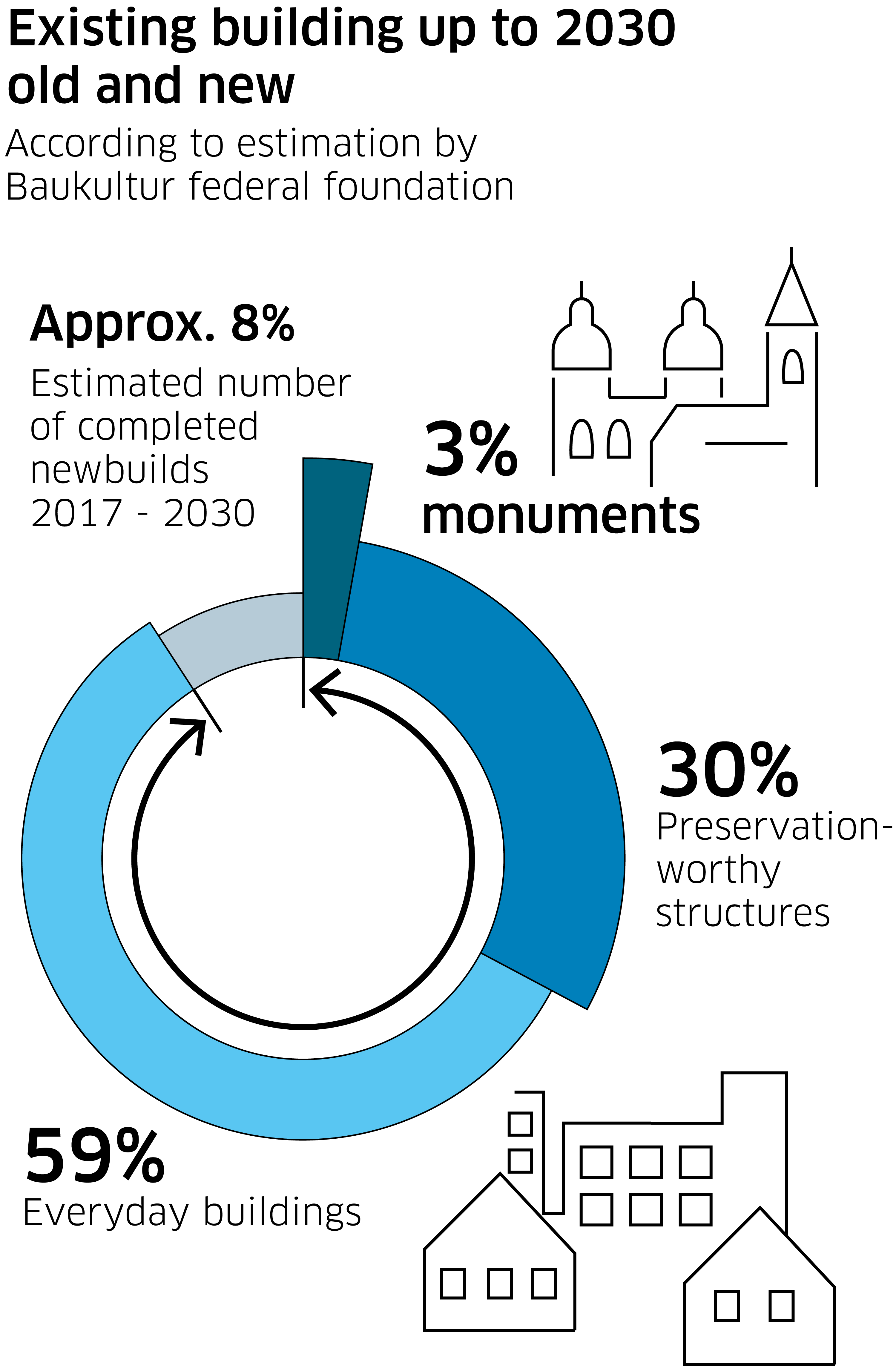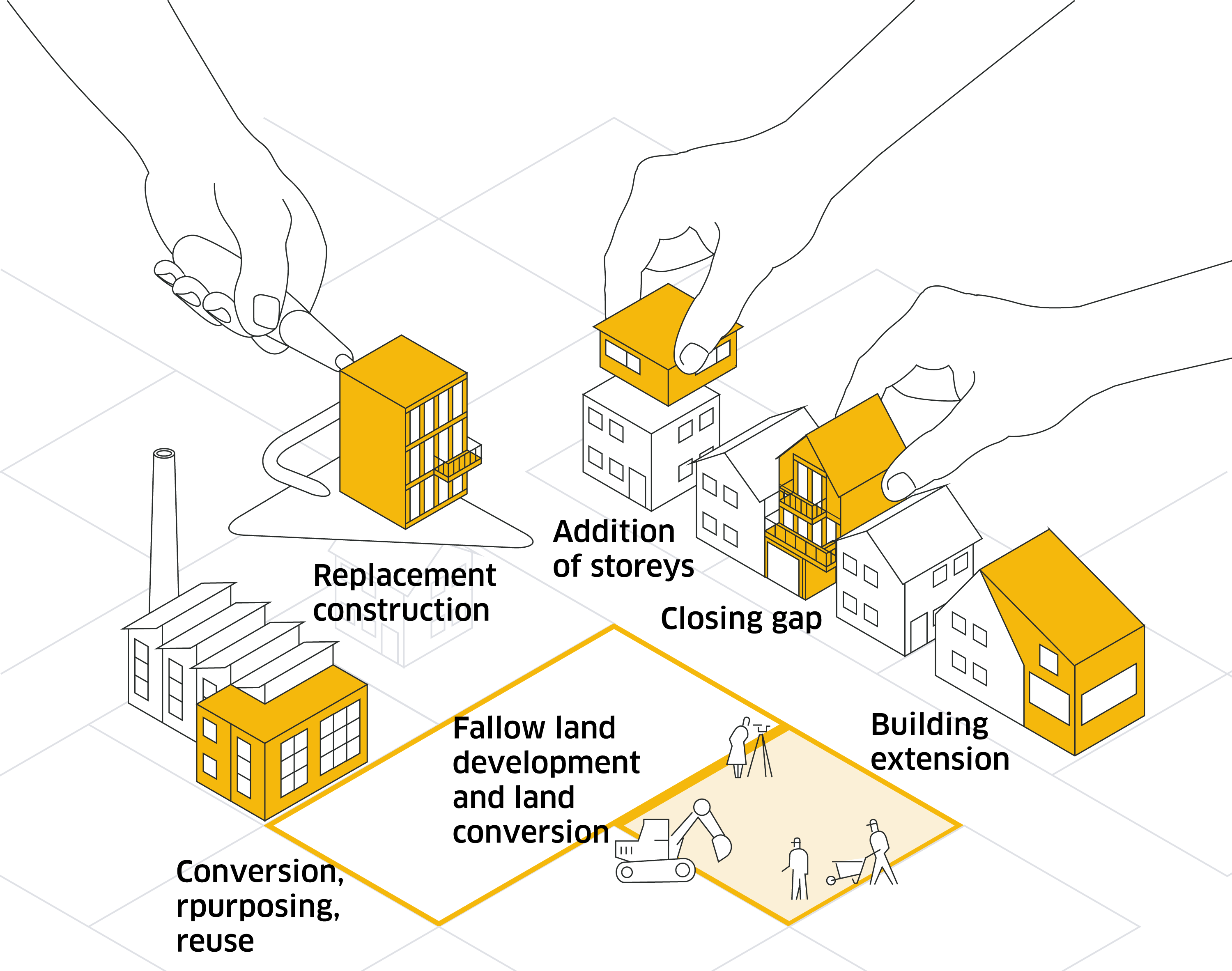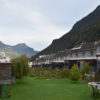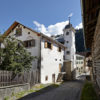“Heritage – Presence – Future” is the title of the 2018/2019 Baukultur (building culture) report by the Baukultur federal foundation. It highlights how important contextually-sensitive planning and construction is for our living spaces, identity and culture. But how can sustainable conversion of our cities succeed in favour of a better quality of life?
2019 Baukultur report
Architectural inventory has a future

Around 90 percent of the city of the future already exists today. Approximately two thirds of investment in the construction sector goes into existing buildings, and this trend is on the rise. The 2018/19 Baukultur report therefore also sees the treatment of the existing building and heritage as a starting point for “integrated, socially sustainable, creatively valuable and ecologically sustainable urban development”.
Holistic development of our living spaces and our society can only come from the existing building, believes Reiner Nagel, Chairman of the Baukultur federal foundation. After all, existing buildings shape our homelands, help to prevent new use of land, and conserve resources. “We have gained an extensive stock of buildings and infrastructure. We live like lords for that matter and it is in our own interest to be responsible with existing buildings”, says Nagel.
In addition to study results on material use, modernisation of existing buildings and the conservation of historic monuments, the report includes results of a survey by the Chamber of Industry and Commerce on the development of business and commercial property as well as results of local questionnaires and surveys of the population. In this report, the foundation asks for opinions on reconstructing historical buildings or reusing churches, among other things. The report also provides examples of successful conversion culture from all over Germany as well as nine practical recommendations for action for politicians and developers. The 2018/19 Baukultur report is the third report on the situation of building culture in Germany under the direction of the federal foundation. It was the result of a complex work process and involved experts and the German Institute of Urban Affairs (Difu).
The foundation was guided by its advisory board, an interdisciplinary group as well as representatives from associations. The public discussion took place across Germany as part of six building culture workshops. The 2018/19 building culture report is thematically related to its predecessors, “Built Living Spaces of the Future: Focus City” (2014/15), and “City and Village” (2016/17), which dealt with the building culture challenges for booming cities as well as specific requirements of rural areas.

image sources: Baukultur federal foundation; infographic: Erfurth Kluger Berlin
Core messages of the building culture report
Continue building mixed quarters
Create Baukultur guiding principles
The built environment holds an important key to character and identity in future-oriented transformations. Baukultur guiding principles have a positive effect on the further development of cities, places and landscapes. They ensure the preservation of regional diversity, local recognition and common values.
The built environment holds an important key to character and identity in future-oriented transformations. Baukultur guiding principles have a positive effect on the further development of cities, places and landscapes. They ensure the preservation of regional diversity, local recognition and common values.
Design public spaces for people
Whether in dense cities or as a village meeting point, public green and open spaces create added value for all citizens. With participation, commitment and good design, urban fallow land and open spaces can be activated with relatively little effort, which has a positive effect on the quality of life.
Whether in dense cities or as a village meeting point, public green and open spaces create added value for all citizens. With participation, commitment and good design, urban fallow land and open spaces can be activated with relatively little effort, which has a positive effect on the quality of life.
Use mobility as an opportunity for conversion culture
The conversion and expansion of transport infrastructures has great potential for design and structural improvements. In the age of global and mobile society, transit areas increasingly take on the role of a local business card with an identitycreating effect.
Establish conversion culture
Retain and redevelop existing structures
Additions, extensions and conversions can represent contemporary solutions for existing buildings. These measures contribute to environmental and economic sustainability. In the process, the continuity of identity-creating regional elements has to be ensured.
Additions, extensions and conversions can represent contemporary solutions for existing buildings. These measures contribute to environmental and economic sustainability. In the process, the continuity of identity-creating regional elements has to be ensured.
Strengthen the historical context as the starting point for new construction
Baukultur becomes apparent by means of historical layers whose special features make up the essence of a place. New building structures upgrade places – provided the projects relate to local qualities and develop them further.
Secure material and immaterial values
Only through a specific mediation can Baukultur values be recognised and maintained. Thereby, society assumes the role of steward of the material and immaterial heritage for the next generation. The responsibility is to be perceived to be a joint task of politics, administration, economy and citizenship.
Only through a specific mediation can Baukultur values be recognised and maintained. Thereby, society assumes the role of steward of the material and immaterial heritage for the next generation. The responsibility is to be perceived to be a joint task of politics, administration, economy and citizenship.
Design successful processes
Establish responsible land and property policy
Land is an irreplaceable commodity of extraordinary social and political importance. Municipal land ownership thus forms the basis of urban development planning for the common good.
Land is an irreplaceable commodity of extraordinary social and political importance. Municipal land ownership thus forms the basis of urban development planning for the common good.
Secure Baukultur values together
The further development of the built environment requires alliances at all levels and in all disciplines. The best solutions for complex questions and processes arise in the interaction of different experiences and approaches.
Anchor design tools
Federal structures and a heterogeneous building stock make a functioning measures catalogue on conversion culture necessary. This can be identified and used effectively at all levels.
More information and the complete 2018/19 Baukultur report can be found at:
bundesstiftung-baukultur.de

